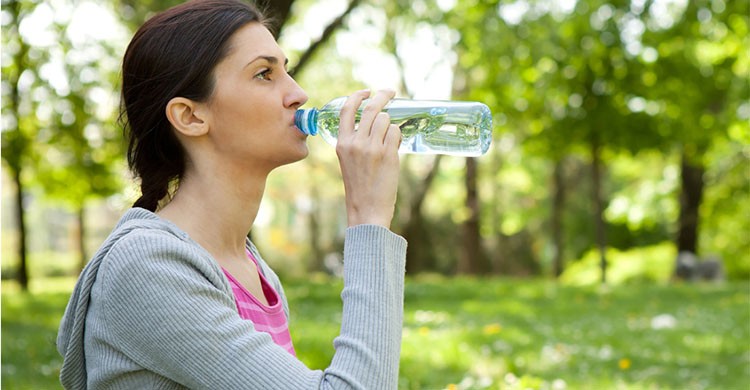6 Signs You’re Not Drinking Enough Water
11 August 2022, 10:06 pm | Updated: 05 April 2025, 03:59 am

Human beings are made up of about 80% water. Every organ, cell, and tissue in our bodies use it to function properly, which is why drinking enough water every day is important.
Water contributes to regular bowel function, optimal muscle performance, and clear, youthful-looking skin. However, failing to drink enough water can cause dehydration and adverse symptoms, including fatigue, headache, weakened immunity, and dry skin.
The American National Academy of Medicine recommends a man to drink 3.7 liters of water and a woman to drink 2.7 liters of water per day.
Is it possible your health problems are being caused by not drinking enough water? Here are seven signs that indicate you may need to start drinking more water to benefit from improved health.
1. Persistent Bad Breath
Water is essential for saliva production and helps rinse away bacteria so you can maintain healthy teeth and gums. Lack of water inhibits saliva production and causes bacteria to build up on the tongue, teeth, and gums, contributing to bad breath. If you practice good oral hygiene, yet continue suffering from chronic bad breath, it’s possible you may not be drinking enough water. Make an appointment with your doctor if bad breath persists after increasing your water intake to rule out other underlying causes such as gum disease, type 2 diabetes, and liver or kidney problems.
2. Frequent Illness
Water helps flush toxins, waste, and bacteria from the body to fight disease and infection as well as strengthens your immune system so you become sick less frequently. If it seems as though you’re always getting sick, you may need to start drinking more water to keep your body free of toxins and functioning at an optimal level. Since lack of water also causes fatigue, you may tend to be less physically active—another risk factor for weakened immunity.
3. Constipation
Water promotes good digestion and regular bowel movements by keeping your stool soft and moving it easily through the digestive tract. Not drinking enough water can cause your body to pull water from stool to compensate for fluid loss, leading to harder and firmer stool that is more difficult to pass. If your bowel movements are irregular and infrequent, try drinking more water to loosen your stools and relieve constipation and bloating.
4. Poor Skin Health
Water hydrates and plumps skin cells to make your skin look brighter, vibrant, and more youthful. However, lack of water can cause skin to lose its plumpness and elasticity—leading to dryness, flakiness, fine lines, wrinkles, and sagging skin. Water even helps reduce acne and other skin problems by flushing harmful toxins from the body. If beauty products and skin treatments are failing to improve the appearance of your skin, drink more water to achieve a more youthful appearance and to reduce or improve skin problems.
5. Sugar Cravings
Dehydration interferes with the body’s ability to reach into glucose stores for energy and can trigger cravings for foods high in sugar and carbohydrates. Unusual and sudden cravings for sugary foods like chocolate, donuts, cookies, and candies may indicate that your body is in great need of water—not food. If you’re experiencing sugar cravings or hunger pangs even though you’ve recently eaten, try drinking more water to rehydrate your body and keep cravings at bay.
6. Decreased Urination
When your body is dehydrated, the kidneys retain as much fluid as possible to maintain their function. This can lead to decreased urination—one of the most common signs of low water intake. Lack of water can cause your urine to become darker in color, stronger in odor, and cloudier in appearance. You may also face a higher risk of urinary tract infection when your body lacks enough water to flush out toxins and bacteria. You’ll know you’re drinking enough water when you start urinating more frequently and the urine is clearer, lighter in color, and far less odorous.






















